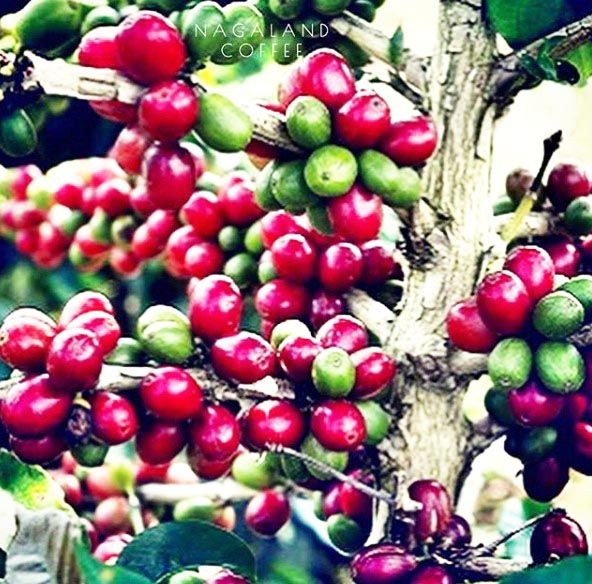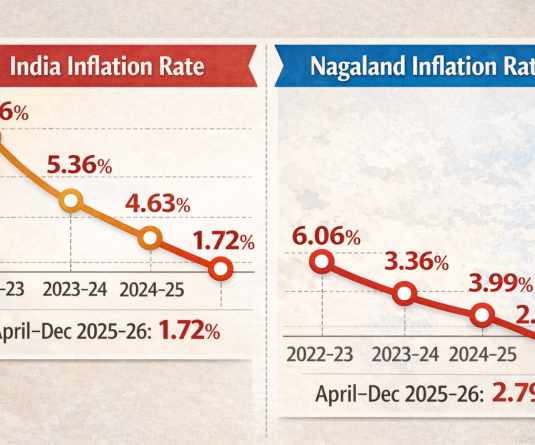Raw Coffee harvested by local farmers in Nagaland. (Photo Courtesy Nagaland Coffee)

Kanili Kiho
Pughoboto | October 2
The Nagaland Land Resources Department is making efforts to advocate coffee-drinking culture in the State.
With resurgence of coffee farming in Nagaland, Director of the Land Resource Department, Renben Jami said that people in the State should harvest the benefits of coffee. "It is not only for plantation and export,” he stated. Coffee culture may still be in the nascent stage, but it is picking up pace along with the huge scope for starting coffee-based enterprises in the State, he added.
With this objective, the department has established a 'Naga Coffee bar' in the office canteen, where the staff has been trained on barista skills. Jami also cited the need to focus more on building avenues for interested persons, especially the unemployed youth to take up such enterprise in the state. Été Coffee is already a success story for any entrepreneur to take it forward, he added.
With the department now equipped with necessary infrastructure and skilled human resources to train interested persons on barista skills, Jami maintained that the department is planning on establishing coffee bars in all the districts simultaneously. In this way, Nagas can also retain the “conversational culture through coffee bars with music,” he added.
‘Nagaland Coffee’
The Naga Coffee Pvt Ltd is a company jointly managed by Dr Pieter Vermeulen from Cape Town, South Africa; Vivito Yeptho from Nagaland and Kajikho Archiiko based in New Delhi. The company sells and exports roasted as well as green coffee under the name ‘Nagaland Coffee’ which is trademarked.
Speaking to The Morung Express, Yeptho said that the team at ‘Nagaland Coffee’ is working hard to put Indian coffee on the 'specialty' map. "It is our opinion that the coffee grown in Nagaland has a much better flavour and aroma than that produced in the south," he added.
The company's coffee is farmed in a joint venture with rural villagers as a means to develop a “sustainable economy” in these villages. "We have sourced only the best Arabica varieties to suit the climate of this new coffee growing area. In each of the areas, we process the coffee differently to ensure it develop its optimal aroma and flavour. All the coffee is purely organic and is processed according to its variety and growing area," Yeptho maintained.
He also said their company conducts direct trade with the farmers with no involvement of any third party.
"We pay them in cash rather than cheques which make it very convenient for the farmers as they live in rural places. We pay them based on the price list of the New York Stock Exchange which creates transparency rather than paying very low rates that the third party buyers did in the past," he added.
Yeptho also shared that farming in Nagaland has been a great challenge, as they train each farmer with the best possible way to ensure that the coffee produced by them meets the demands of the international market.
Currently, the company has farms in Zunheboto, Mon, Wokha, Tuensang and Mokokchung.
Yeptho said that Nagaland has had coffee since the 1980s, but only as an 'instant' product and not as a 'specialty.'
However, at present, he maintained that coffee culture is slowly moving towards specialty coffee, as customers are beginning to appreciate the aroma and flavour of coffee, unlike its instant variants.
(This is the second of a three-part series)
Read Part I & III Here





